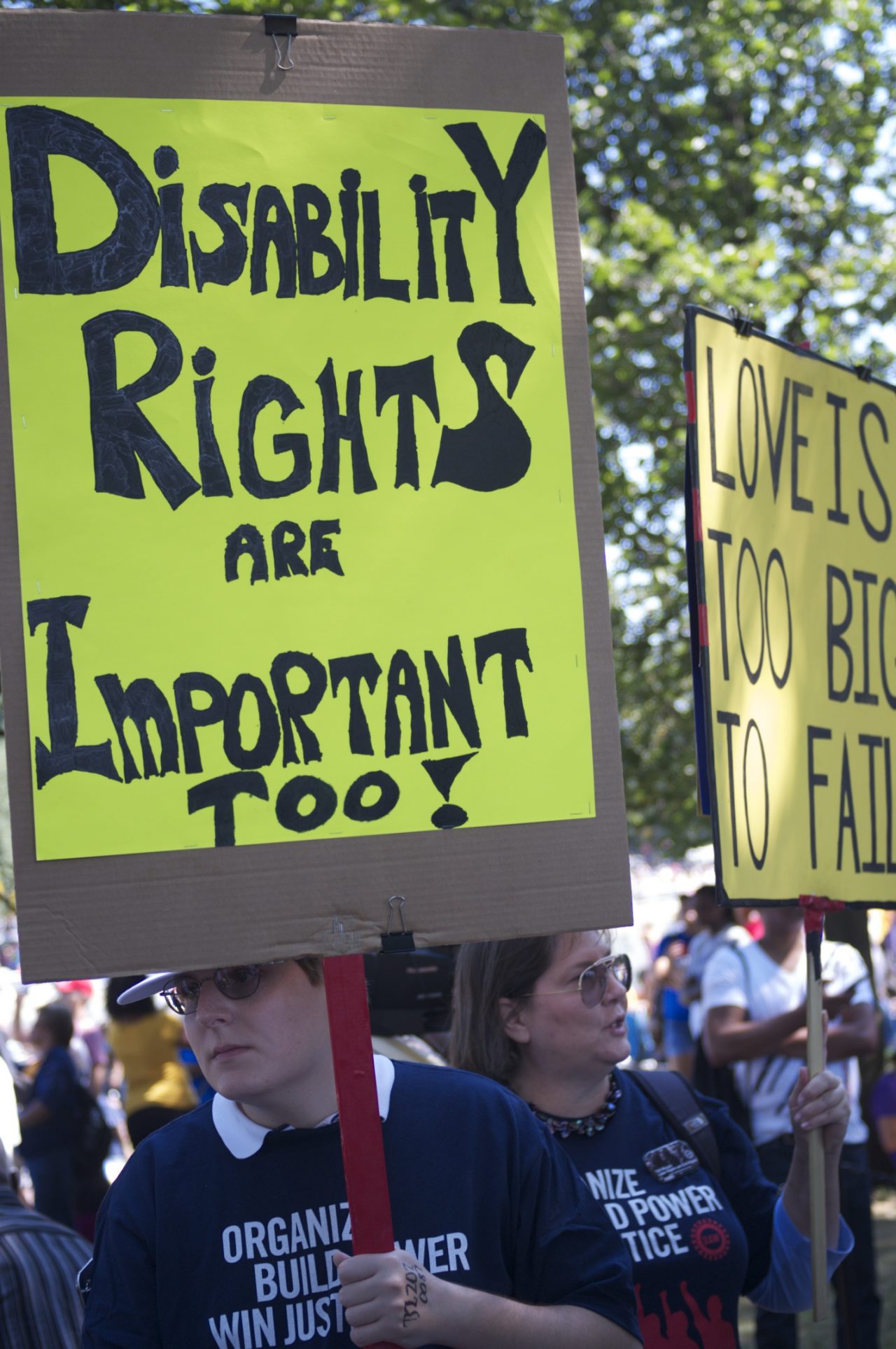HMDT Blog: The Long Struggle for Disability Rights
This blog was written for HMDT by Jack Welch, who is currently a member of the HMDT Youth Champion Board for the South West.

This blog was written for HMDT by Jack Welch, who is currently a member of the HMDT Youth Champion Board for the South West.
Unlike some forms of discrimination, there seems to be a lesser focus on the discrimination people who are disabled face in their lives. This is not to say people who live free from the challenges that disability present are wilfully ignorant, but more that there is an unspoken ‘elephant in the room’ which we do not always like to confront. Generally, the rates of hate crime which are directed towards disabled people are reasonably low compared to others, with disability hate crime making up around 5% of all hate crime recorded by the police and compiled by the Home Office between 2014/15. However, what is more alarming about this report is that the rate of this kind of crime has increased dramatically in just a few years since the 2012 Paralympics, at which time around 1,911 crimes were recorded.
I have to declare that I am not outwardly disabled myself, being on the autism spectrum, and have not developed a secondary learning disability, which can affect up to half of those on the spectrum. But the fact in my school days (where I was mainstream educated) I could be branded as a ‘retard’ or a ‘spastic’ by people of my generation is a cause for concern. There are many types of crime, including physical attacks, which can leave lasting damage to victims. Bullies, in my view, have a predatory sense of who is weak or more vulnerable to harass and though there may be mitigating reasons behind this hateful behaviour, it stands to reason that even in the present day, people of all ages can harbour a negative perception that devalues the role which disabled people can play in society. The reality is that as many as 24% of those behind disability hate crimes are aged just 18-24. When putting this in perspective with the barbarism with which the Nazis treated disabled people, with as many as 250,000 murdered in the mass killing between 1939-45, we must ask: have people truly learnt about the need to value and respect disabled people in our communities?
As we mark this year’s Disability Awareness Day, now more than ever there is a need to prioritise a programme of disability awareness in schools and improvements to how disability is perceived in the media, and by people more broadly. The recent Learning Disability Week recognised just how important building friendships is to many in that community, who are often isolated through no fault of their own. Over a third of people with a learning disability feel that they are at risk of being bullied, which holds them back. In my experience, making a diverse network of friends who have lifelong conditions can surprise people at the degree of kindness and trust they show when just being with them. This is the image of disability which needs to be presented – not the often accepted view that they deserve pity or need to be cured. The fight for the Disability Discrimination Act 20 years ago just shows that disabled people will campaign for the rights being denied to them if needs be. I am proud to have had a role in a number of capacities within organisations that defend and lead the way for the rights which autistic and disabled people are entitled to, which includes Scope’s new ‘Scope for Change’ programme. Designed as a movement to inspire a new generation of young disabled campaigners to be the agents for change in their communities, we received an intensive training weekend on all the methods and tactics which make for effective campaigning. Since then, I have been developing my own initiative to make museums more autism accessible, called ‘Museum of Minds’.
Make no mistake though; I do not think that the majority of disabled people are able to be proactive campaigners who can make their voices heard. Many people, including those with my condition, will be non-verbal, severely impacted by their circumstances, or simply disenfranchised entirely. There is no excuse for discriminating against people who face an uphill battle to lead a stable life as it is, without prejudiced individuals wanting to make that tougher. In this case, more willingness to understand others around us, rather than acting on a dangerous instinct can go a long way.
- Read about the persecution of disabled people by the Nazis here.
- To find out more about our Youth Champion programme for people aged 14-24, email [email protected]